Have you ever wondered how you can tell if your lively Japanese Bobtail Cat is feeling under the weather before it’s too late? Recognizing illness in Japanese Bobtail Cats can be tricky due to their playful and affectionate nature, but early detection is crucial for maintaining their vibrant health. Japanese Bobtail Cats have a special bond with their owners, and being able to identify the symptoms of sickness in Japanese Bobtail Cats early on ensures their well-being and happiness.
Japanese Bobtails are known for their distinct personalities and charming quirks. However, their dynamic demeanor might sometimes mask underlying health issues. As a dedicated owner, it’s your responsibility to stay vigilant and keep an eye out for any telltale signs that your feline friend might be feeling off.
Key Takeaways
- Early recognition of Japanese Bobtail Cat illness signs is vital for prompt treatment.
- These cats can hide symptoms well, making vigilant observation important.
- Physical and behavioral changes often indicate underlying health issues.
- A strong bond with your cat can help in noticing subtle symptoms of sickness in Japanese Bobtail Cats.
- Regular vet check-ups are essential in preventing and addressing health problems.
Introduction to Japanese Bobtail Cats

Japanese Bobtail Cats are truly one of a kind, setting themselves apart with a blend of remarkable features that captivate cat lovers around the globe. Their intelligence, sociability, and unique physical attributes make them fascinating companions.
The Unique Traits of Japanese Bobtails
Sporting short, “bobbed” tails that resemble a pom-pom, Japanese Bobtail Cats are instantly recognizable. They come in a variety of coat colors and patterns, each more striking than the last. Known for their sharp intellect and keen curiosity, these cats are quick learners and can even be trained to perform tricks or tasks. Their agile and muscular bodies reflect their active nature, ensuring they are always up for a play session or a bout of exploration.
Why They Make Great Pets
Japanese Bobtail Cats are much more than a pretty face and a cute tail. These felines are incredibly outgoing and love being part of family activities. They thrive on interaction, whether it’s a gentle head-butt to get your attention or a spirited game of fetch. Their flexibility and adaptability make them a wonderful fit for various home environments and lifestyles. However, to keep them in good shape, it’s essential to be aware of Japanese Bobtail Cat health issues and know how to tell if a Japanese Bobtail Cat is sick. Their strong social bonds and endearing personalities ensure they quickly become cherished members of any household.
The following table highlights some of their standout features:
| Trait | Description |
|---|---|
| Tail | Short, bobbed, and unique to each cat |
| Coat Colors | Variety, including bi-color, solid, and tri-color |
| Personality | Playful, extroverted, and affectionate |
| Intelligence | Highly intelligent and trainable |
Common Health Issues in Japanese Bobtail Cats
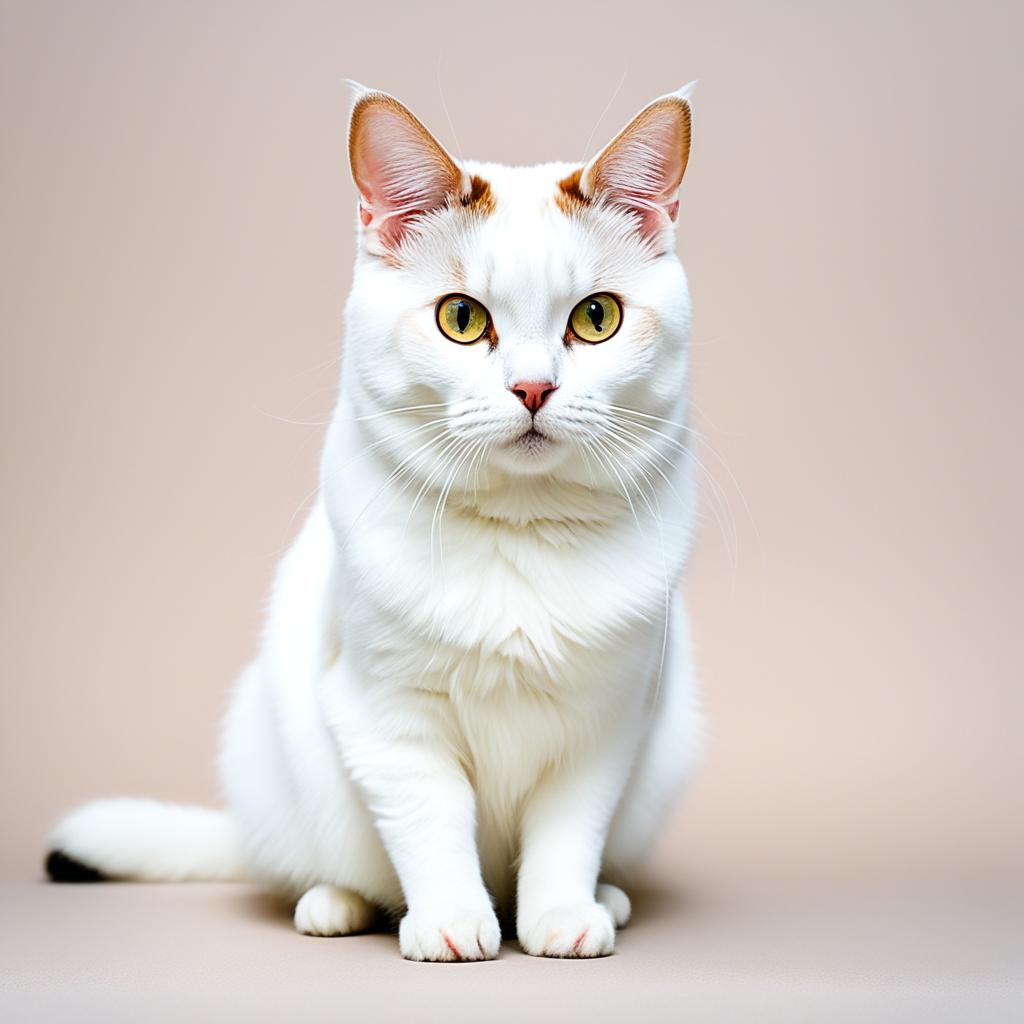
When it comes to keeping your Japanese Bobtail in top-notch health, it is essential to be aware of the common health challenges this breed might face. From genetic predispositions to weight management issues, and the ever-present threat of parasites—owners must be vigilant. Knowing the warning signs of a sick Japanese Bobtail Cat can make all the difference.
Genetic Predispositions
Japanese Bobtail Cats are generally robust, but they aren’t entirely free from genetic woes. Some hereditary diseases might creep in, given their breeding history. For instance, make sure to look out for any unexpected lethargy or weakness, as these could be early warning signs of a sick Japanese Bobtail Cat suffering from a genetic condition.
Weight Management Problems
Maintaining a healthy weight is crucial for your furry friend. Like humans, obesity can lead to a whole host of issues, including diabetes and arthritis. Regular playtime and a balanced diet are essential. If you notice sudden weight changes, these could be warning signs of a sick Japanese Bobtail Cat, calling for a closer look into their diet and lifestyle.
Common Parasites
Parasites are the silent health saboteurs. Fleas, ticks, and worms can turn your pet’s life upside down. These pesky invaders are not just annoying; they can lead to severe health complications. Regular veterinary check-ups and preventive care can help fend off these common parasites. If your cat exhibits signs like persistent scratching or digestive issues, it’s time to act—these are typical warning signs of a sick Japanese Bobtail Cat.
What Are the Signs of a Sick Japanese Bobtail Cat?

Recognizing the subtle signs of illness in your Japanese Bobtail Cat is crucial for their well-being. These cats, known for their vibrant and playful nature, display specific symptoms when unwell. Detecting these signs early can make a significant difference.
- Changes in Eating Patterns: A noticeable increase or decrease in appetite may signal Japanese Bobtail Cat health issues. Watch out for sudden disinterest in food or excessive eating.
- Behavioral Shifts: Pay attention to any alterations in your cat’s temperament. If your typically sprightly feline becomes lethargic or unusually irritable, it could indicate underlying health problems.
- Grooming Habits: Over-grooming or neglecting personal hygiene are red flags. Cats are meticulous groomers, so any deviation from their routine may point to Japanese Bobtail Cat health issues.
“An ounce of prevention is worth a pound of cure.” — Benjamin Franklin
By staying vigilant and noting any such changes, you can promptly address these Japanese Bobtail Cat health issues. After all, your furry friend depends on you to keep them in tip-top shape.
If you observe any of these symptoms, consulting your veterinarian is imperative. Early detection and intervention can help manage and treat the condition effectively, ensuring your Japanese Bobtail continues to lead a joyful and healthy life.
| Symptom | Potential Issue | Action Required |
|---|---|---|
| Loss of Appetite | Digestive Problems | Consult Veterinarian |
| Increased Irritability | Pain or Illness | Schedule Check-up |
| Over-Grooming | Skin Conditions | Examine and Treat |
Your keen observation can be the first step in identifying and addressing Japanese Bobtail Cat health issues, ensuring your feline friend’s optimal health and happiness.
Behavioral Changes to Watch Out For
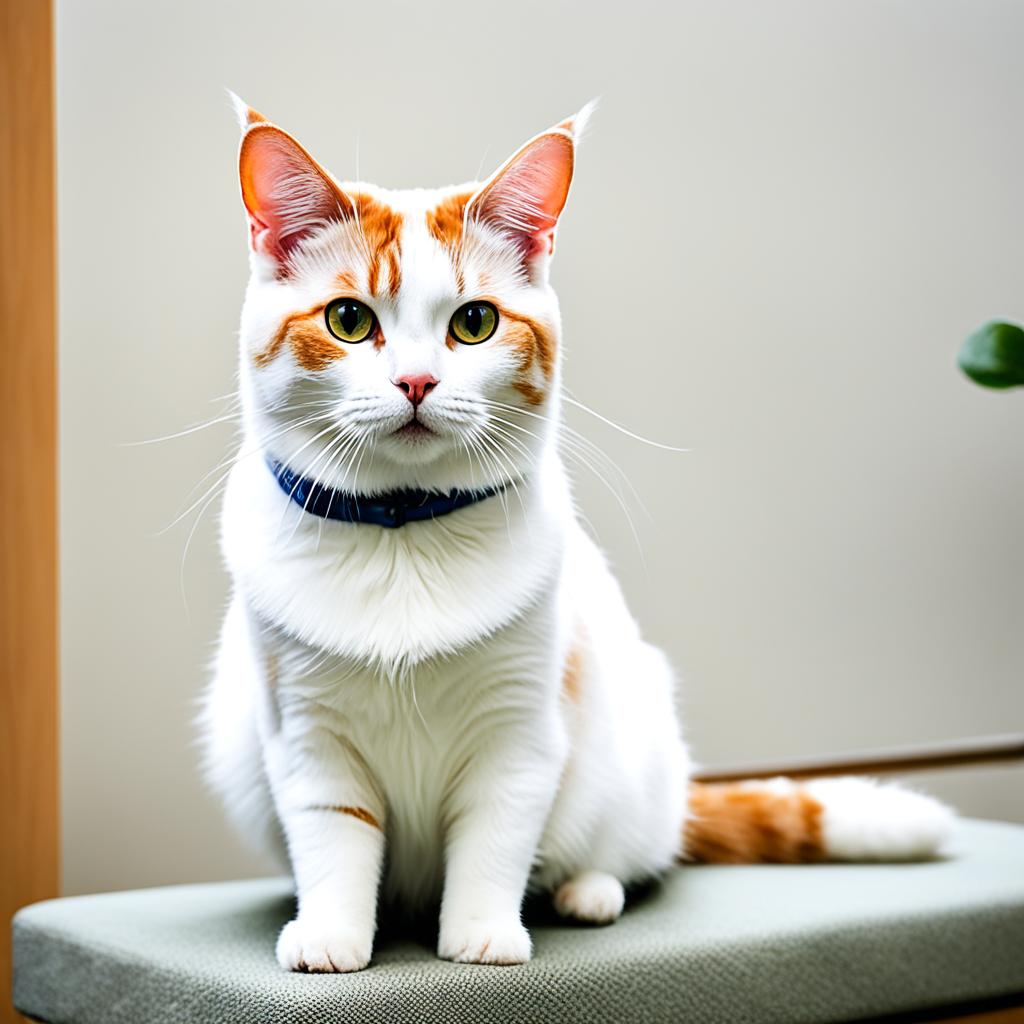
Learning how to tell if a Japanese Bobtail Cat is sick can be crucial for early intervention and ensuring your feline friend remains in top health. Look out for two major behavioral changes that might indicate something is amiss.
Increased Irritability
One of the first signs that should raise a red flag is increased irritability. Japanese Bobtail Cats are known for their friendly and playful nature. Sudden aggression or avoidance behavior, therefore, is out of character. If your normally affectionate cat starts hissing, showing aggression, or isolating itself, it might be dealing with an underlying health issue. Understanding how to tell if a Japanese Bobtail Cat is sick involves being attentive to these shifts in behavior.
| Normal Behavior | Signs of Irritability |
|---|---|
| Playful and interactive | Aggression and avoidance |
| Affectionate with family | Frequent hissing or scratching |
| Outgoing and social | Hiding or isolating behavior |
Lethargy and Weakness
Lethargy and weakness are another significant indicators of how to tell if a Japanese Bobtail Cat is sick. A cat that suddenly becomes inactive, sleeps more than usual, or shows a lack of interest in its favorite toys may be experiencing health problems. Monitoring energy levels and noting any drastic changes can help you catch potential issues early and seek veterinary advice promptly.
Physical Symptoms of Sickness in Japanese Bobtail Cats

Recognizing the physical symptoms of sickness in Japanese Bobtail Cats is crucial for their well-being. These feline companions can show various signs of illness, and it’s vital to monitor their health closely.
Changes in Appetite
One of the key symptoms of sickness in Japanese Bobtail Cats is a noticeable change in their appetite. If your cat suddenly loses interest in food or starts overeating, it could indicate an underlying health issue. Cats that usually have a stable diet should not experience drastic changes unless something is wrong.
Weight Loss or Gain
Another significant indicator of illness is unexplained weight loss or gain. Consistent weight management is crucial for your cat’s health. If you observe unexpected changes in weight, it may be time for a vet visit. Sudden weight loss can be particularly alarming, while rapid gain might suggest conditions like hypothyroidism or other metabolic disorders.
| Physical Symptom | Potential Health Issue |
|---|---|
| Loss of Appetite | Kidney Disease, Stress |
| Increased Appetite | Diabetes, Thyroid Problems |
| Weight Loss | Cancer, Digestive Issues |
| Weight Gain | Hormonal Imbalance, Overfeeding |
By being attentive to these symptoms of sickness in Japanese Bobtail Cats, you can ensure prompt action and better health outcomes for your beloved pet.
Identifying Dental Disease in Japanese Bobtail Cats

Maintaining your Japanese Bobtail Cat’s dental health is crucial. Recognizing illness in Japanese Bobtail Cats often starts with noticing changes in their oral hygiene. Dental disease can cause severe discomfort and lead to other health complications if left untreated.
Symptoms of Dental Issues
Understanding the common symptoms of dental disease can help in recognizing illness in Japanese Bobtail Cats early. Look out for:
- Bad breath
- Difficulty eating
- Pawing at the mouth
- Visible tartar buildup
- Red or swollen gums
Preventive Measures
Prevention is better than cure, especially when it comes to your cat’s teeth. Engaging in regular dental care routines can avert severe dental diseases and help in recognizing illness in Japanese Bobtail Cats. Here are some preventive measures:
- Routine teeth brushing with cat-safe toothpaste
- Regular dental check-ups
- Providing dental treats and toys
- Ensuring a balanced diet
| Symptoms | Preventive Measures |
|---|---|
| Bad breath | Regular teeth brushing |
| Tartar buildup | Dental check-ups |
| Difficulty eating | Dental treats |
| Swollen gums | Balanced diet |
Respiratory Symptoms: What to Look For
When it comes to Japanese Bobtail Cat health issues, being vigilant about respiratory symptoms is key. Cats are masters at hiding discomfort, so it’s important to know what to watch for. Recognizing these signs early can make all the difference in ensuring your feline friend gets the care they need.
Frequent Sneezing and Coughing
If your Japanese Bobtail cat is sneezing or coughing more often than usual, it could indicate an allergy or an upper respiratory infection. Long-term or severe sneezing and coughing warrant a trip to the vet for a thorough examination.
Difficulty Breathing
Difficulty breathing is one of the more serious Japanese Bobtail Cat health issues. If your cat is struggling to breathe or breathing with an open mouth, this can be symptomatic of asthma, bronchitis, or even heart problems. Immediate veterinary care is essential in such cases.
Nasal Discharge
Persistent nasal discharge is another red flag. Clear, watery discharge might suggest an allergy, whereas colored mucus could point to an infection. Either way, nasal discharge qualifies as one of the Japanese Bobtail Cat health issues that requires prompt attention.
| Symptom | Possible Causes | Recommended Action |
|---|---|---|
| Frequent Sneezing | Allergies, Upper respiratory infection | Vet check-up for proper diagnosis |
| Difficulty Breathing | Asthma, Bronchitis, Heart disease | Immediate veterinary care |
| Nasal Discharge | Allergies, Infection | Consult a vet if persistent |
Understanding Digestive Problems in Japanese Bobtails
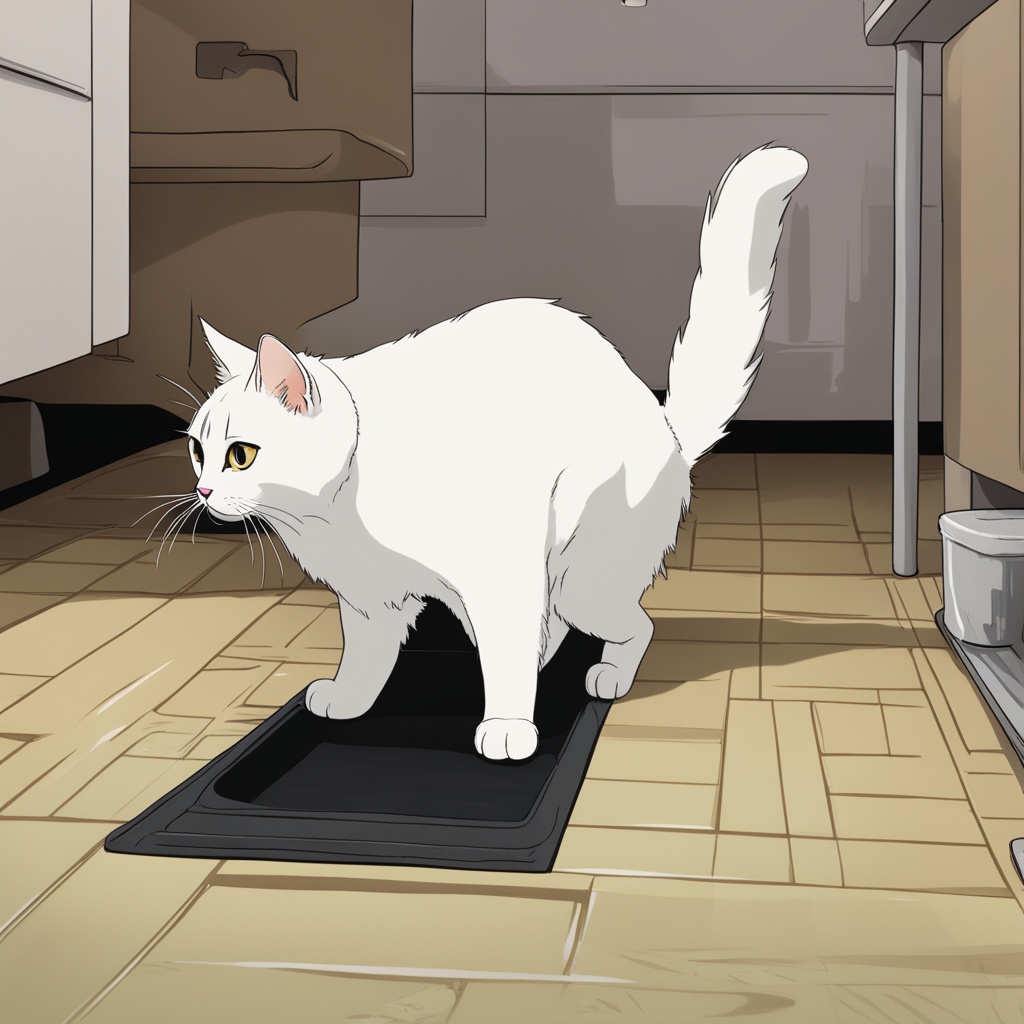
Digestive troubles are common warning signs of a sick Japanese Bobtail Cat, and recognizing these issues early can make all the difference in your feline friend’s health. Paying attention to their gastrointestinal health is key.
Vomiting and Diarrhea
Vomiting and diarrhea are clear Japanese Bobtail Cat illness signs that something may be amiss. Occasional vomiting might not be a cause for alarm, but frequent episodes should definitely catch your attention. Similarly, diarrhea that’s persistent or severe warrants a vet visit.
Constipation Signs
On the flip side, constipation can also indicate health problems. If your Japanese Bobtail struggles to defecate or has infrequent bowel movements, it’s essential to address these warning signs of a sick Japanese Bobtail Cat. Monitoring their litter box activities can help you discern patterns and identify when they need medical intervention.
Coat and Skin Conditions to Monitor
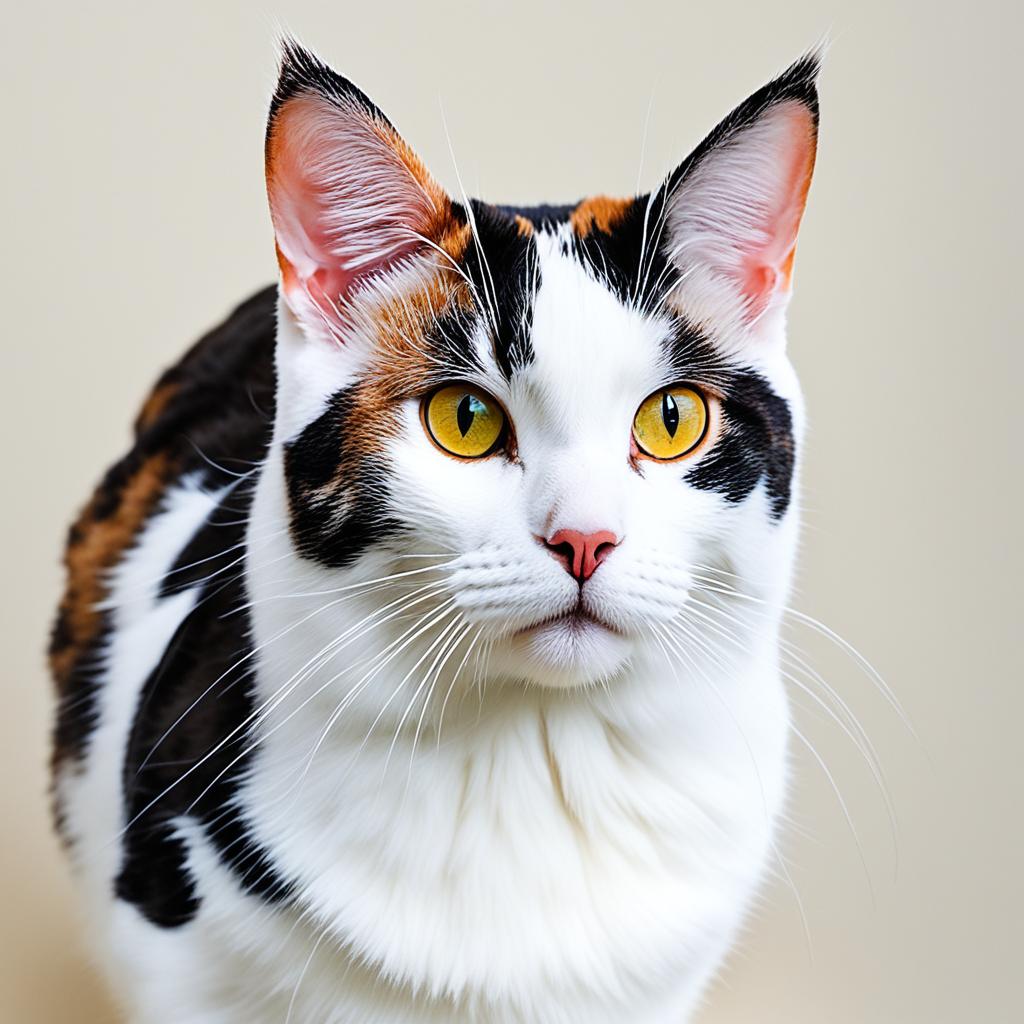
Regular monitoring of your Japanese Bobtail Cat’s coat and skin can catch early signs of health issues. Knowing how to tell if a Japanese Bobtail Cat is sick through their skin condition is essential, as it could indicate more serious problems.
Excessive Scratching
If you notice your cat scratching more than usual, it may be dealing with uncomfortable skin irritations. Understanding how to tell if a Japanese Bobtail Cat is sick can help address these issues promptly.
Hair Loss and Bald Spots
Hair loss and bald patches can be alarming signs. These symptoms could stem from allergies, parasites, or infections. Observing these changes is key in how to tell if a Japanese Bobtail Cat is sick and ensuring they receive the care they need.
- Frequent grooming or licking in specific areas
- Visible lesions or sores on the skin
- Development of scabs or rough patches
Here’s a quick reference to identify the cause of these symptoms:
| Symptom | Possible Cause |
|---|---|
| Excessive scratching | Fleas, mites, or allergies |
| Hair loss | Fungal infections, stress, or poor diet |
| Bald spots | Parasites, hormonal imbalances, or infections |
Knowing how to tell if a Japanese Bobtail Cat is sick through these coat and skin symptoms ensures your feline friend stays healthy and happy. Regular vet check-ups and maintaining a close watch on any changes are crucial steps in their care.
Eye and Ear Issues: Warning Signs
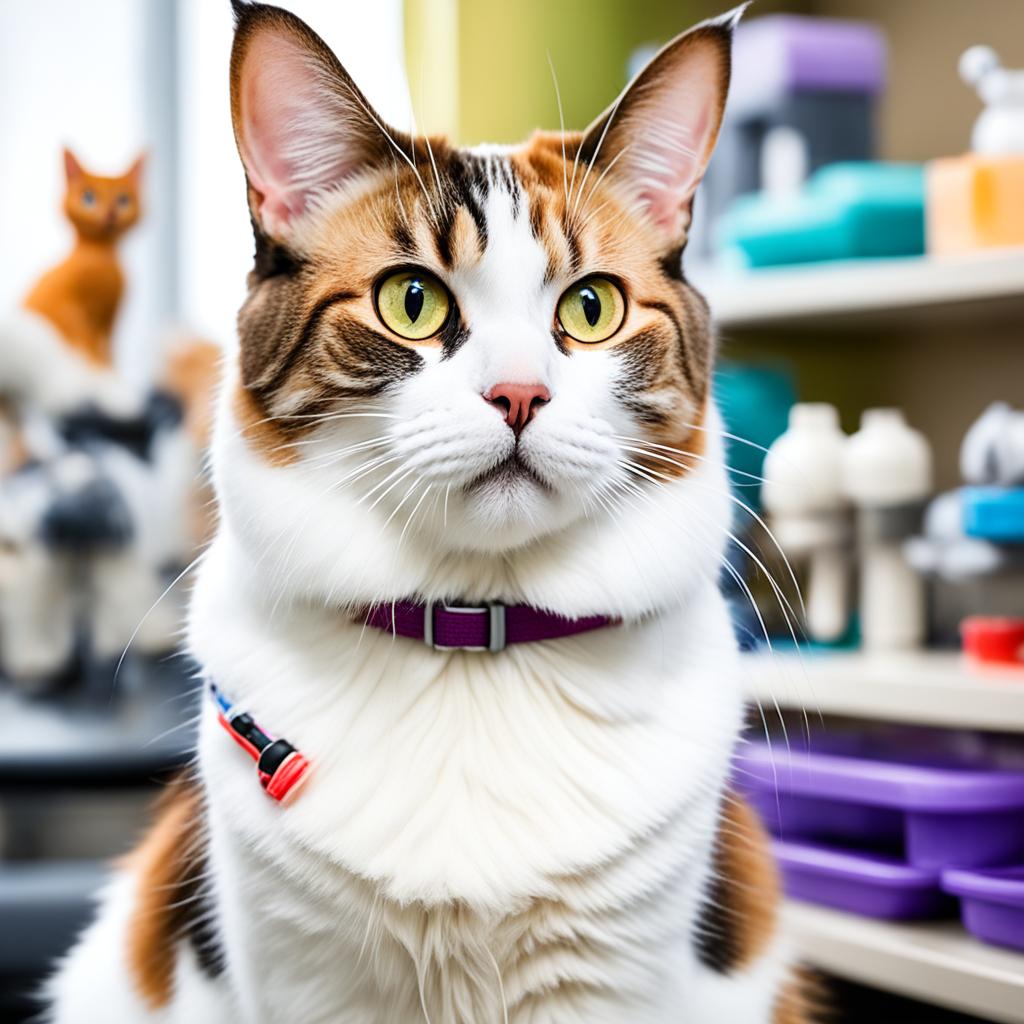
Japanese Bobtail Cats are cherished for their lively nature, yet they are also prone to specific health issues. Thus, as a conscientious pet owner, you must monitor for symptoms of sickness in Japanese Bobtail Cats, particularly eye and ear problems.
Redness and Irritation
Eye redness and irritation in your Japanese Bobtail could signify an infection or a foreign object. Regularly inspecting your cat’s eyes can help catch these signs early, preventing further complications. Persistently rubbing their eyes? That’s a red flag!
Discharge and Odor
Discharge from the eyes or ears often indicates infection, allergies, or other health concerns. For the ears, watch out for a strong odor – it’s not just unpleasant; it’s a clear symptom of sickness in Japanese Bobtail Cats. Keep their eyes and ears clean and consult your vet if these symptoms appear.
Recognizing these symptoms of sickness in Japanese Bobtail Cats ensures a proactive approach to their health, preventing more severe issues down the line. Keep a keen eye, and maintain those regular check-ups!
Spaying, Neutering, and Related Health Benefits
Spaying and neutering your Japanese Bobtail Cat offers several health benefits that can contribute to their overall well-being. These procedures not only reduce the risk of certain cancers but also help in recognizing illness in Japanese Bobtail Cats early. By eliminating the possibility of reproductive cancers, you are safeguarding your feline friend against some of the more common Japanese Bobtail Cat health issues.
Beyond the cancer prevention benefits, spaying and neutering can also mitigate behavioral problems. You might notice a reduction in marking territory and less roaming tendencies, which consequently decreases the chances of accidents or other outdoor hazards. These procedures provide an excellent opportunity for veterinarians to check on other potential health issues, helping pet owners in recognizing illness in Japanese Bobtail Cats early on.
| Benefits | Spaying | Neutering |
|---|---|---|
| Reduces cancer risks | Ovarian, uterine cancer | Testicular cancer |
| Behavioral benefits | Less yowling, less roaming | Reduced aggression, less roaming |
| Aids in recognizing illness early | During surgery check-ups | During surgery check-ups |
Preventive Measures and Regular Check-ups
When it comes to maintaining the health and well-being of your Japanese Bobtail, vigilance is key. Regular check-ups and preventive care can help you spot the warning signs of a sick Japanese Bobtail Cat before things get out of hand.
Importance of Vaccinations
One of the best preventive measures for your feline friend involves keeping up with their vaccinations. These essential shots protect against infectious diseases and ensure a robust immune system. Staying on top of vaccinations helps in recognizing the early warning signs of a sick Japanese Bobtail Cat, giving you the best chance of addressing any issues promptly.
Routine Health Screenings
Think of routine health screenings as an all-inclusive wellness check. These exams allow your vet to find Japanese Bobtail Cat illness signs early, from hidden infections to subtle behavioral changes. Regular screenings can lead to early detection of issues, making treatment more effective and giving your furry companion a better quality of life.
By prioritizing these preventive measures and staying alert to the warning signs of a sick Japanese Bobtail Cat, you can ensure your feline friend remains healthy and happy for years to come.
Conclusion
To ensure your beloved feline’s health and happiness, appreciating the importance of early detection of sickness in Japanese Bobtail Cats is key. Throughout this article, we’ve uncovered comprehensive insights on how to tell if a Japanese Bobtail Cat is sick, equipping you to be a more vigilant and informed pet owner.
From observing behavioral changes to noting physical symptoms and respiratory issues, you now possess the essential knowledge to spot warning signs early. Always keep an eye on your Japanese Bobtail’s habits, whether it’s their eating patterns or playful antics, as these little clues can be vital in maintaining their well-being.
A proactive partnership with your veterinarian is the cornerstone of your cat’s health. Regular check-ups, preventive measures, and timely interventions are indispensable tools in your caregiving arsenal. By staying attentive and collaborating closely with your vet, you guarantee the best possible care for your furry companion, ensuring a long, joyful life for your Japanese Bobtail Cat.
FAQ
What are the Japanese Bobtail Cat illness signs I should watch out for?
Look for changes like lethargy, increased irritability, weight loss or gain, changes in appetite, excessive scratching, coughing, sneezing, difficulty breathing, vomiting, diarrhea, constipation, bad breath, visible tartar buildup, redness or discharge from eyes and ears, and unexplained hair loss.
How can I tell if my Japanese Bobtail Cat is sick?
Pay attention to any deviations from their normal behavior, such as increased irritability, lethargy, or weakness. Also, monitor any physical symptoms like changes in appetite, weight fluctuations, and signs of dental or respiratory issues. Prompt veterinary care is crucial.
What makes Japanese Bobtail Cats unique?
Japanese Bobtails are known for their lively personalities, playful nature, and unique physical features, such as their short, pom-pom-like tails. They come in a variety of coat colors and are highly intelligent and sociable, making them great family pets.
What are some common health issues in Japanese Bobtail Cats?
Common health issues include genetic predispositions to certain diseases, weight management problems, and susceptibility to common parasites. Regular veterinary check-ups are essential to monitor and manage these health concerns.
What are the warning signs of a sick Japanese Bobtail Cat?
Watch for signs like lethargy, increased irritability, changes in appetite, unexplained weight loss or gain, coughing, sneezing, difficulty breathing, vomiting, diarrhea, constipation, excessive scratching, and hair loss.
Why is monitoring my Japanese Bobtail Cat’s behavior important?
Behavioral changes can be early indicators of illness. If your usually friendly and playful Bobtail becomes irritable, aggressive, or avoids interaction, or shows signs of lethargy and weakness, it’s time for a veterinary visit.
What physical symptoms should I look for in a sick Japanese Bobtail Cat?
Physical symptoms to watch for include changes in appetite, weight loss or gain, visible tartar buildup, bad breath, nasal discharge, persistent sneezing, and coughing.
How can I identify dental disease in my Japanese Bobtail Cat?
Symptoms of dental disease include bad breath, difficulty eating, and visible tartar buildup. Preventive measures such as regular teeth brushing and dental check-ups can help maintain oral hygiene.
What respiratory symptoms should I be aware of in Japanese Bobtail Cats?
Respiratory symptoms include frequent sneezing, coughing, difficulty breathing, and nasal discharge. These can indicate infections, allergies, or other respiratory issues requiring veterinary evaluation.
What digestive problems should I look for in my Japanese Bobtail?
Vomiting, diarrhea, and constipation are significant indicators of digestive problems. If these symptoms persist, consult a veterinarian to rule out underlying issues.
What coat and skin conditions should I monitor in my Japanese Bobtail Cat?
Excessive scratching, hair loss, and bald spots can signal skin conditions like allergies, parasites, or infections. Routine coat and skin assessments and prompt veterinary care can help address these issues.
What signs of eye and ear issues should I recognize in Japanese Bobtail Cats?
Redness, irritation, unusual discharge, and persistent odor from the eyes or ears are warning signs. Timely identification and treatment of these symptoms can prevent severe complications.
Why should I consider spaying or neutering my Japanese Bobtail Cat?
Spaying or neutering reduces the risk of certain cancers and prevents unwanted litters. It also contributes to behavior and health benefits, such as reduced territorial tendencies and roaming.
What preventive measures and regular check-ups are essential for Japanese Bobtail Cats?
Vaccinations protect against common infectious diseases, and routine health screenings aid in early detection and treatment of potential concerns. Regular veterinary visits ensure the long-term health and happiness of your feline friend.




